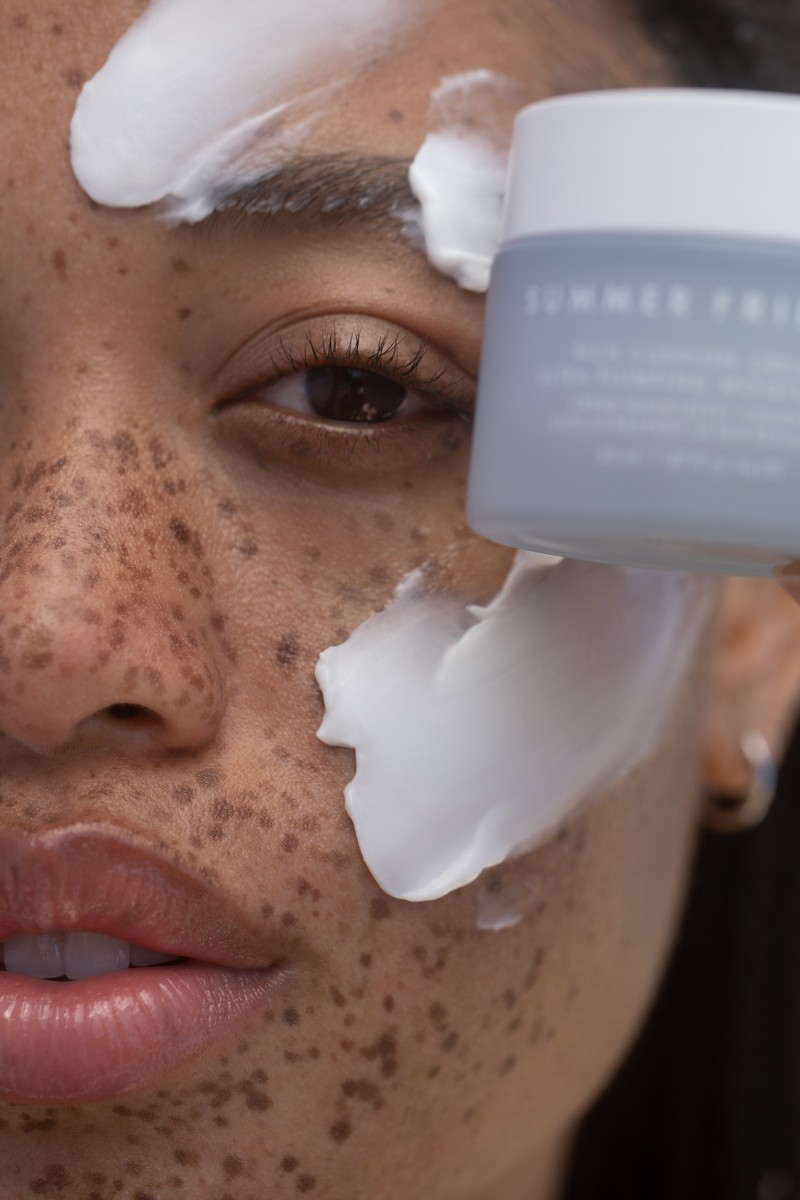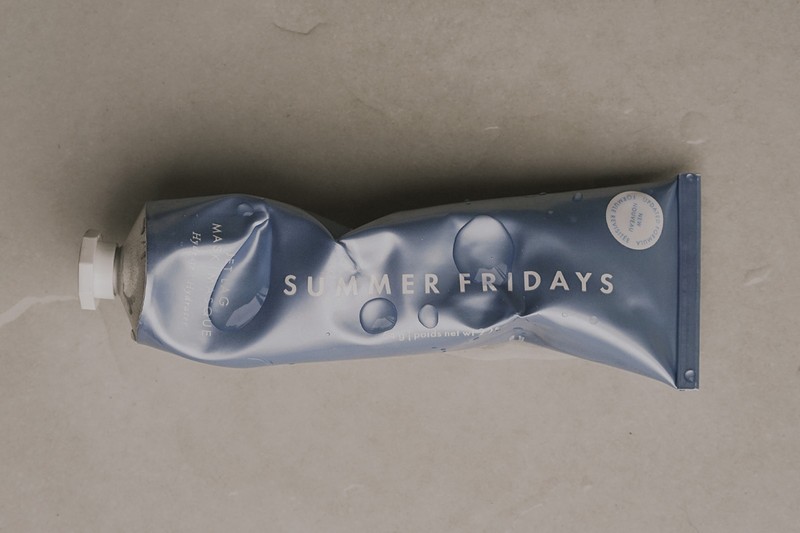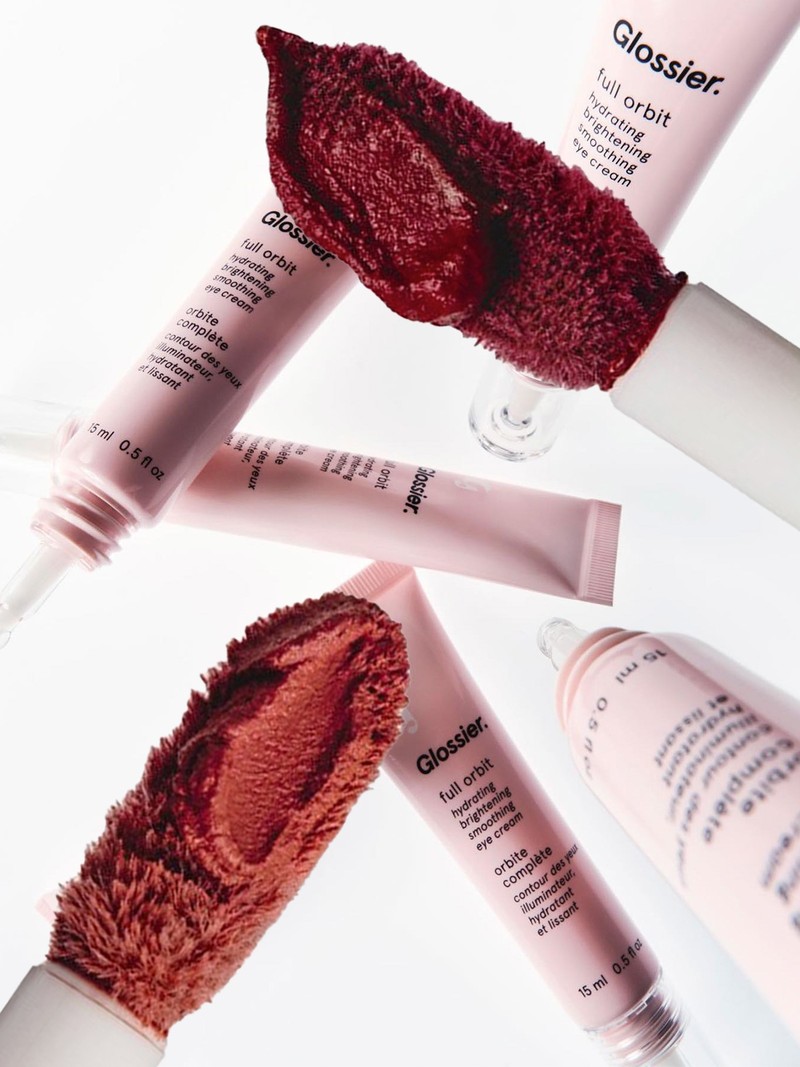
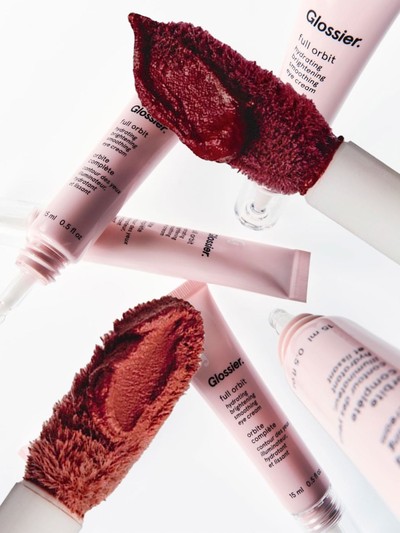
How To Stand Out In A Crowded Market
Take us back to the beginning, Clare. Where did you find the confidence to start your own agency?
I never set out to create my own agency. I gained amazing experience working at a global level across The Estée Lauder Companies, with roles at Bobbi Brown and Jo Malone London. I learnt how to build and elevate brands, and I was mentored by some of the industry’s most talented and visionary names. It was a highlight of my career. When I left, I started consulting and wanted to transfer the ‘big brand’ experience to smaller beauty brands who could benefit from a more strategic approach. It was an interesting time because lots of smaller brands were emerging in the industry, like Votary, Augustinus Bader and Summer Fridays, which were some of my first clients.
From there, the agency developed organically as I realised there was demand for a bespoke, elevated approach. Because everything happened organically, I didn’t need to assess the market as I was already immersed in the industry. It was more about working on my passion and making sure I had a great network of people around me. In the early days, lots of people encouraged me to start my own business, which reaffirmed I was doing the right thing.
What would you say to a budding entrepreneur looking to launch in a crowded market like beauty?
An elevated approach is key. If you can’t do something different, do it better than your competitors. For us, new beauty brands enter the space all the time, so I encourage my team to look at different routes, find new ideas and innovate. Part of our DNA is having an elevated aesthetic, which we also offer to our clients. It’s not just branding; it’s also activations and the way you tell stories.
Also, when you’re a small business, it’s important to be agile and adaptable. That’s the beauty of start-ups in the early days. Don’t be afraid to move quickly, get your team on board and push forward.
Building relationships is also invaluable. We have relationships with editors, influencers and people in the industry who have supported us throughout my career, which I’m incredibly grateful for.
Again, innovation is important when you’re in a crowded space. Whether it’s a product or service you offer, you should always be thinking about the next step and how you can level up. Plus, don’t just think about your own sector – think of other spaces that relate to the business. For us, it’s all about beauty, as a lifestyle, we but take an interest in other sectors, whether that’s interiors, design culture or fashion.
Do you have any tips on hiring the right team in the early days?
In the beginning, you want to bring in people who’ll be happy to muck in, do the job and support you. I was conscious of costs, but as the business grew, we took time to hire the right people and now we have the most incredible, diverse team. The most important thing is to hire people with the skills you don’t have – don’t be afraid to hire those smarter than you. I’m not good at every element of the business (and want to spend time on the creative side) so having experts in each corner is key.
Even though I want to be on the creative side, I don’t underestimate the operational side of the business. It’s so important to have a good accountant, lawyer and HR manager. They can all be consultants in the early days, but you’ll need that support in the day-to-day running of the business.
What does good leadership mean to you?
I love this question because it’s one of the most important parts of any business. For me, it’s making sure your team feel like they belong, and creating an environment that people want to be in. Mentoring is also key, so people have a clear career path. Micromanaging is probably the worst thing you can do (you need to trust people), but being approachable is important. As is being kind. I like to think I manage kindness with accountability. I’ve worked hard to foster that culture, which is one of my biggest achievements. I want people to want to come into work, but also know they can take time away or start a family.
How do you stay on top of trends to stay relevant and competitive?
I don’t think about being competitive, in a way. There’s room for everyone in the industry and it’s great to be in contact with other business owners in your own field. My focus is our clients and what we need to do to deliver. I’m aware of what’s going on around us, but I concentrate on what we’re doing. Once you’ve found your niche or USP that sets you apart from others, that’s all you need. That could be doing something quicker or better, or from a different angle.
Tell us about some of the challenges you’ve faced as a business owner…
Managing growth has been a big challenge. One of the most important things as a business owner is establishing your company culture and ensuring people feel a sense of belonging. I now have the best team and it’s been a rewarding journey finding those people. I’m passionate about bringing young people into the business and seeing them grow. I never really look at CVs, and instead like to find people through word of mouth. We also work with Fashion Minority Alliance which is an amazing nonprofit organisation that gives opportunities to young people from different backgrounds. Often, I don’t have a job in mind but meet someone who I know will be a great fit when an opportunity comes up.
Have you ever had to pivot your business strategy?
It was less of a pivot and more of an expansion, but we have added the Collective arm to the business. As well as offering communications, we now look after industry talent. It was an opportunity for us to diversify our portfolio and bring two parts of the business together. Our talent agency incorporates PR and strategy; we represent experts in their field, like nutritionist Rose Ferguson, facialist Hadda and make-up artist Wendy Rowe. That’s been a huge part of our growth and gives us an edge within the industry. If you’re willing to take a leap and do something another brand isn’t, why not?
Do you have any favourite projects that have put CGC on the map?
We launched Augustinus Bader into the market and set the tone for them on a global level. They’re a true disruptor that launched with one product when so many others were championing ten-step skincare routines. We also launched Summer Fridays in the UK and it has become one of the most successful beauty brands. I’m proud that we have long-standing relationships with clients. The key to long-term collaboration is understanding the vision. But it’s also about trust, respect and a mutual understanding.
Within beauty, what trends do you see emerging in the near future?
The ‘tween’ skincare trend is interesting. We’ve seen 11 and 12-year-olds obsessing over beauty (my daughter is definitely in that category) so I expect brands will continue to cater to a younger audience. I also think we’ll see big corporate brands buying smaller, indie brands which are having a moment. I’m not sure we’ll see more on the celebrity side, but we’ll see more insider-led brands. AI is also an interesting influence. It will likely drive the industry forward – and we’ve already seen AI influencers emerging.
How do you stay inspired and motivated today?
I love what I do, so motivation comes easily. To run any business, you need to be passionate in whatever you’re doing, so it doesn’t feel like work.
You expanded into the US last year. What have you learnt about heading overseas?
Launching in the US was a great way to grow. We wanted to be able to service our brands across markets and have a global view. It wasn’t something I initially set out to do, but it became something brands increasingly asked for. The key is having a good support network and a solid internal infrastructure. You need to have experts in that local market, so we hired people in the States, as opposed to relocating our London office. Also, spending time in the market to understand how things work is so important. The US market is different to the UK, so I spent a lot of time with the team over there to understand the market and foster the company culture, which isn’t always easy when you’re not there. You need to ensure the teams don’t go in different directions, so collaboration is key.
Finally, what would you say to someone thinking about taking the plunge and starting their own business?
The best job in the world shouldn’t feel like a job, so find something you truly love. Don’t be afraid to hire people smarter than you, and surround yourself with a diverse team who can bring opportunity to your business. Don’t overcommit – and don’t be afraid to say no. Plus, don’t be driven solely by money. It’s about doing the right thing, staying true to yourself and listening to your gut.
Visit C-G-C.com & follow @CGC_London on Instagram
DISCLAIMER: We endeavour to always credit the correct original source of every image we use. If you think a credit may be incorrect, please contact us at info@sheerluxe.com.
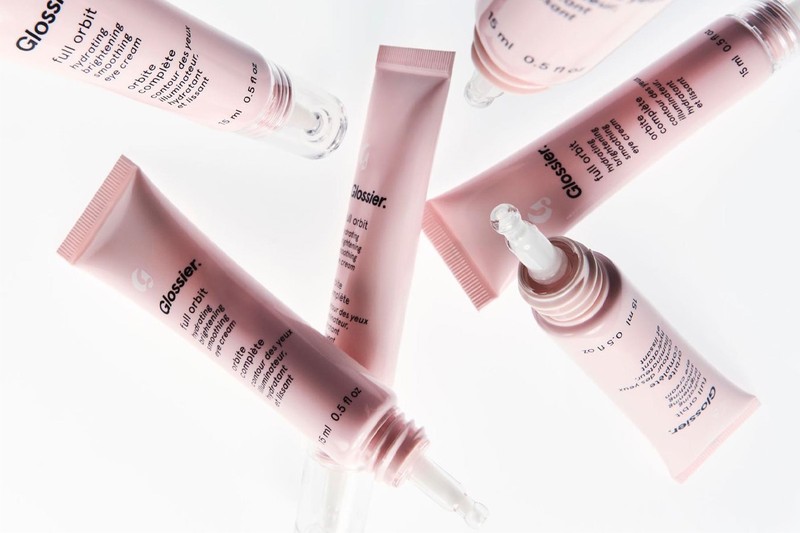
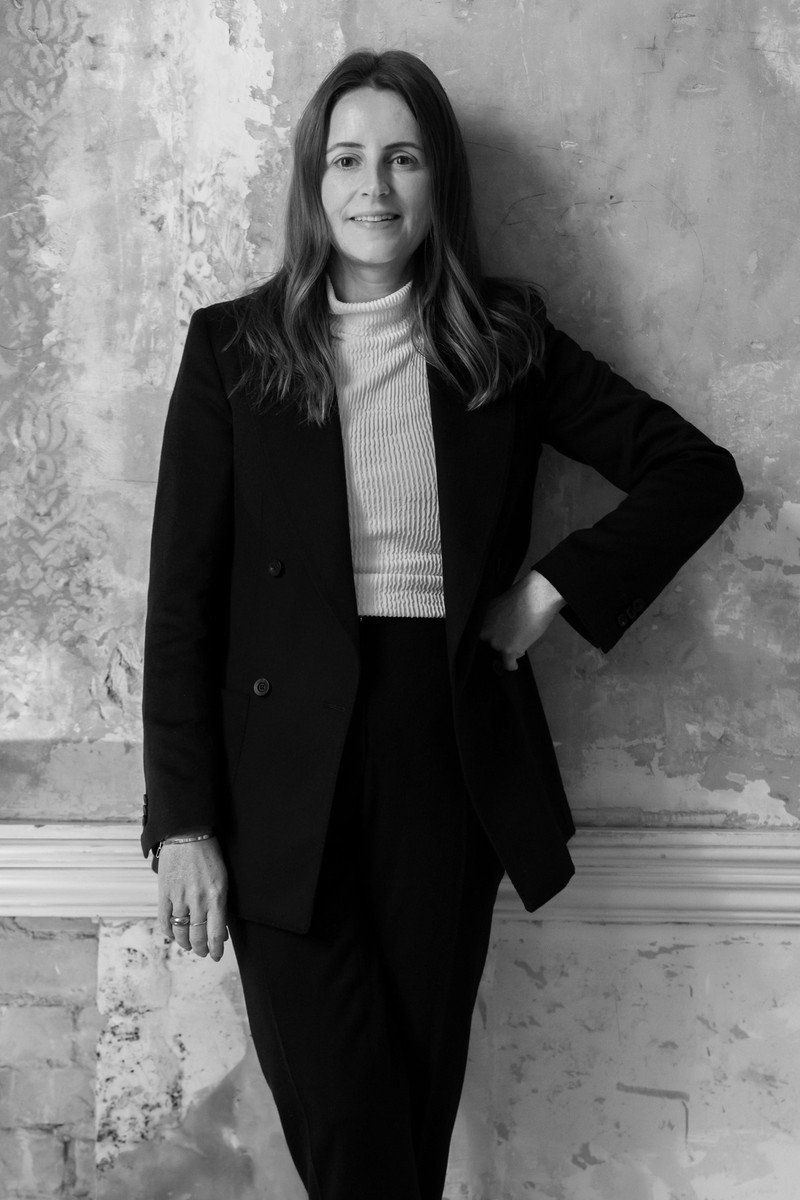
/https%3A%2F%2Fsw18.sheerluxe.com%2Fsites%2Fsheerluxe%2Ffiles%2Farticles%2F2024%2F02%2Fhow-to-stand-out-in-crowded-market-summer-fridays-new.png?itok=tV0Iig7k)
